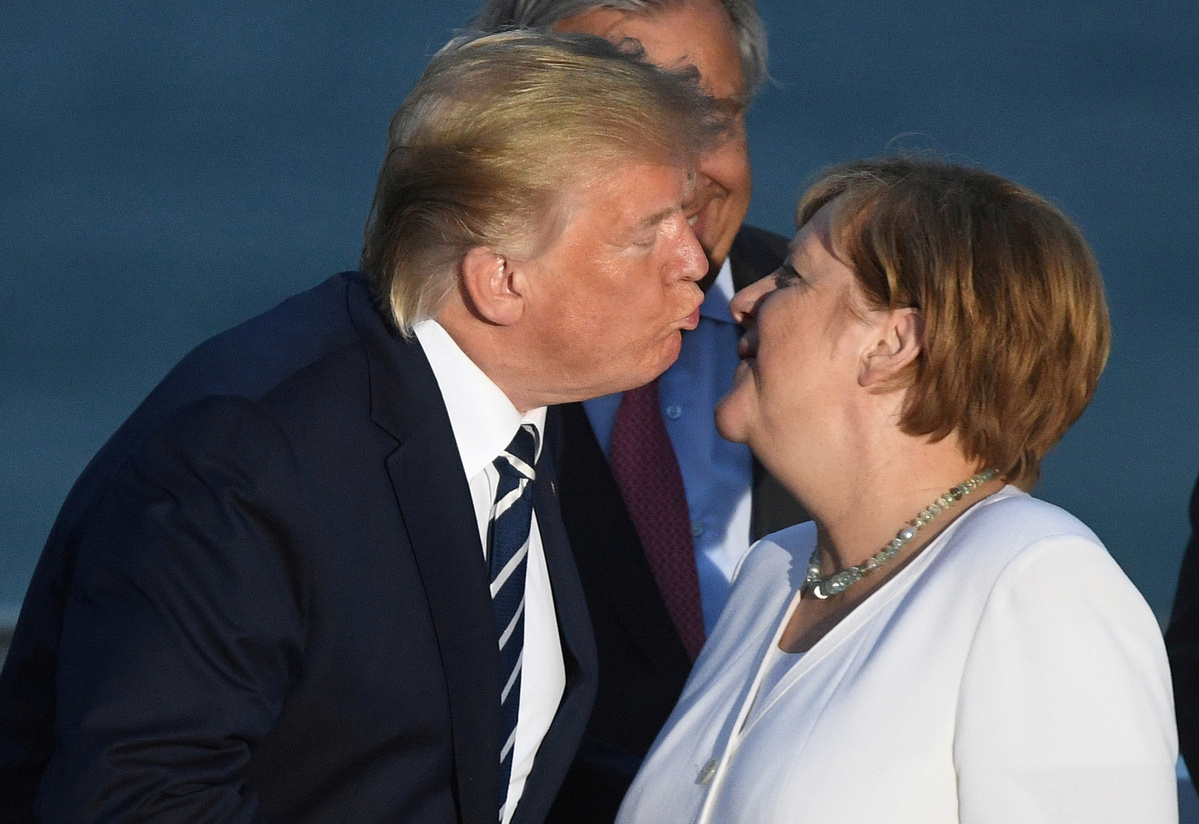US moves to expand G7 seen as sideshow
Expert says that summit without China is doomed to deliver meager outcomes
By Pan Mengqi | China Daily Global | Updated: 2020-07-13 10:13

Expert says that summit without China is doomed to deliver meager outcomes
With the G7 summit postponed until September, the United States, the host of this year's summit, is making the best of its chairmanship of the gathering by expanding its guest lists.
US President Donald Trump, calling the G7 "a very outdated group that fails to reflect the present international situation", has extended invitations to leaders of Russia, India, Australia and South Korea to the summit. A recent report said Brazil's President Jair Bolsonaro is also on Trump's invitation list.
Although Australia and South Korea have accepted the invitation, the suggestion of a larger G7 summit has been rejected by Canada and the United Kingdom.
Russia's Foreign Ministry said the proposal to expand the G7 will fail to "provide a truly universal representation… and it is hardly possible to implement serious undertakings of global significance without China's participation".
Japan rejected Trump's idea of adding South Korea to the summit. The two neighbors have been at loggerheads since last year over historical issues.
Though Trump is yet to achieve his goal of expanding the G7, some analysts say his thinking behind enlargement is not irrational. The G7 brings the US, the UK, Germany, France, Italy, Japan and Canada, historically leading industrial powers, to the table, but Trump has said the group's role in setting policy for global economies is compromised because three of the world's largest economies, China, Russia and India, are excluded.
Xin Qiang, deputy director of the Center for US Studies at Fudan University, said structural changes have occurred in the global economic with the rise of many emerging economies in addition to those that belong to the G7.
Based on Trump's record, if he thinks a certain organization or pact runs counter to US interests he terminates the country's relationship with it, Xin said. He cited as examples the recently announced US withdrawal from the World Health Organization and its earlier withdrawals from the Paris climate change agreement, and the Iran nuclear agreement.
'Influence is declining'
"However, Trump did not quit the G7 because a withdrawal will make the US lose support from the six other powerful members, which he needs for his agenda to deter and contain other rising countries, for example, China, especially after China's successful economic recovery from the pandemic. Therefore, Trump has to maintain US participation in the organization. Trump is aware of the fact that US influence and capability in leading the other six members are declining due to his unilateral moves, which have ultimately impaired them."
In a New York Times report, a senior German official was quoted as saying Chancellor Angela Merkel had declined to take part in this year's national leaders' level meeting in Washington because she believed proper diplomatic preparations had not been made; she did not want to be part of an anti-China display; and she did not want to be seen as interfering in US domestic politics.
Media reports said France and Italy may not be interested in taking part either. "They may predict that Trump would use the G7 summit to urge the other six countries to make compromises on some issues, including attempts to make a joint effort to contain China, which may damage their interests," Xin said.
From Trump's perspective, his proposal to expand the G7 is also a political show, Xin said. He wants to display to the world and US voters that he is a remarkable global influencer and that the US remains the world's leader.
Regardless of whether the forum is greatly expanded, without the participation of China, the world's second-largest economy, largest trading country, largest manufacturer and the largest emerging market, the summit will fail to achieve substantial outcomes, Xin said.
Su Xiaohui, a senior researcher of international strategies at the China Institute of International Studies, said Trump's proposal to expand the group is primarily motivated by his own agenda regarding China, and the summit in September also serves to boost his campaign for reelection in November. Moreover, Su said, conflicts of interest within the G7 countries have not been resolved.
























